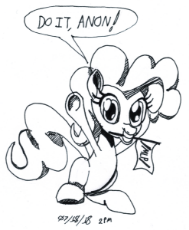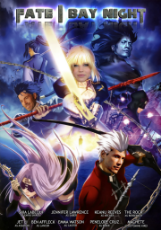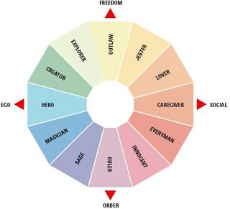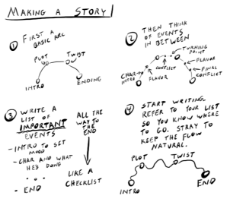I want to do an epic Mlp adventure comic and I want to get to write it good: the story, the characters, the dialogues, the message. I already have more or less the plotline, the 80% of the characters but I want to know how to write correctly every scene or characterization. In conclusion, what's the exact process of writting? Any tips or ideas do you have?
Also writting thread if you want.
/mlpol/ - My Little Politics
Archived thread
>>167408
It boils down to trial and error. But the basics are:
-Characters must be consistent. If they act in a certain way, keep them that way.
-If they are to act out of character, make sure to develop the reason why. Such as witnessing a traumatizing event or they received criticism from someone close. (or far)
-The key to an effective character is that they feel alive. The best way to test this is to put said character in many situations and have them react to it.
-Ensure the audience can understand what is happening in the world
-The kind of story you want to tell.
Just look at the Fate series. It started from an erotic visual novel made to be just another story under Nasu.
They were not expecting it to explode in popularity at all. To the point it overshadowed many of their other works.
Tl;DR: Bring your characters to life and do it for yourself.
It boils down to trial and error. But the basics are:
-Characters must be consistent. If they act in a certain way, keep them that way.
-If they are to act out of character, make sure to develop the reason why. Such as witnessing a traumatizing event or they received criticism from someone close. (or far)
-The key to an effective character is that they feel alive. The best way to test this is to put said character in many situations and have them react to it.
-Ensure the audience can understand what is happening in the world
-The kind of story you want to tell.
Just look at the Fate series. It started from an erotic visual novel made to be just another story under Nasu.
They were not expecting it to explode in popularity at all. To the point it overshadowed many of their other works.
Tl;DR: Bring your characters to life and do it for yourself.
1535080923_1.zip (3.0 MB, Listing of : C:\____\mlpolbackup_backups\backup\mlpol\archive\src\1535073723039-0.zip
Size Date Time Name
-------- -------- ------ ---------
3177465 27-05-18 13:29 John Truby - The Anatomy of Story- 22 Steps to Becoming a Master Storyteller.epub
, John Truby - The Anatomy o….zip)
1535080923_3.jpg (144.9 KB, 550x609, 12-Common-Character-Archet….jpg)
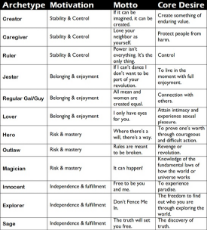
>>167408
Writing a story for comics, graphic novels, manga, etc. is a little bit different than writing a story for a book: since you have the advantage of graphics, you can employ "show, don't tell" far more literally. In fact, I'd say it's just about mandatory. Other than that, most of the processes for making the actual story remain pretty much the same.
One of the more important things to remember about comic writing, is not to have text walls obscuring the visuals at all. If your speech bubble takes up more than a third of a panel, you need to stop what you're doing and reevaluate that particular panel, something the nu-IDW artists need a boot up the ass about. Remember, literally show, don't tell!
If you're looking to hammer out your process, however, I'd suggest giving the book I've attached a good read. I've got a tidy collection of other things attached too, especially relating to character archetypes and symbolism, in case they're at all helpful.
Writing a story for comics, graphic novels, manga, etc. is a little bit different than writing a story for a book: since you have the advantage of graphics, you can employ "show, don't tell" far more literally. In fact, I'd say it's just about mandatory. Other than that, most of the processes for making the actual story remain pretty much the same.
One of the more important things to remember about comic writing, is not to have text walls obscuring the visuals at all. If your speech bubble takes up more than a third of a panel, you need to stop what you're doing and reevaluate that particular panel, something the nu-IDW artists need a boot up the ass about. Remember, literally show, don't tell!
If you're looking to hammer out your process, however, I'd suggest giving the book I've attached a good read. I've got a tidy collection of other things attached too, especially relating to character archetypes and symbolism, in case they're at all helpful.
Thanks, both of you. I'll screencap this, get my shit together and write the best story I can. Wish me success!
5 replies | 8 files | 1 UUIDs | Archived
